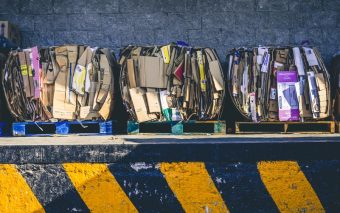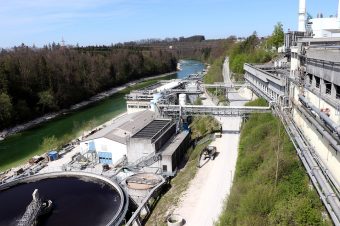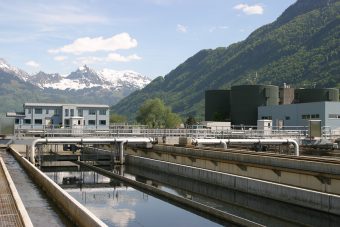
Waste management is a sector that, in addition to improving the environment, has the potential to improve the economy. The authorities increasingly understand the importance and benefits of the “circulation” of the economy. For this reason, besides the recycling, they encourage the waste reduction, the production of articles from recycled raw materials and conservation of resources, thus providing financial gain for their countries through economic growth and job creation. As a candidate for membership of the European Union, but also as an environmentally conscious and socially responsible country, Serbia too should “green” the scene of this sector.
In our country, the largest part of the municipal waste is being disposed of in landfills, which is the least desirable option in the hierarchy of waste management. It should be preceded by the prevention of waste generation, reuse, recycling and other types of waste recovery under the principles of the circular economy, such as the incineration of non-recyclable waste with the aim to exploit the energy from waste.
In Focus:
By the unification of the municipalities in favour of the cooperative waste management, a system of regional centres will be established in Serbia, which includes a local landfill for municipal waste, a line for separation of recyclable waste, a transfer station, as well as the necessary infrastructure for composting. Sombor will also be part of this network.
The Ministry of Environmental Protection recognised the importance of the construction of the Regional Waste Management Centre in Rancevo, a community in the municipality of Sombor, by allocating funds for the implementation of this project. What will make this regional centre different from the others is that it will be the first in our country, but also in the wider vicinity, to use the mechanical-biological treatment of municipal waste in its processes.

After the tender and conducted public procurement procedures, the citizens of Sombor have given the task of designing of the Regional Centre for Waste Management in Rancevo to the design company CEEFOR (Centre for Energy Efficiency and Sustainable Development) from Belgrade as the leader of a consortium of several companies.
What does the mechanical-biological treatment of waste involve?
The construction of the Regional Centre for Waste Management complex in Rancevo, Sombor, will create conditions for safe waste disposal. Apart from disposing of solid waste, the treatment of clean packaging recyclable waste is also contemplated, which should brighten the gloomy picture Serbia paints in this field because only five percent of municipal waste is currently being recycled.

Within the bounds of the Waste Management Centre, it will be possible to construct the facilities for collection, primary selection and storage of non-hazardous household and industrial waste, the facilities for mechanical-biological waste treatment, as well as all complemental units contemplated for the plant of this purpose, such as manipulative plateaus, facilities for storage of waste and secondary raw materials, administration facilities, workshops and other components.
MBT (mechanical-biological treatment) is designed for mixed municipal waste treatment in the complex. All mixed municipal waste (except the bulky waste) is first being preliminarily mechanically calibrated – the granulation up to 250 mm and metals are separated, after which biological treatment is performed.
The biological treatment process includes bio-drying, aerobic decomposition and anaerobic digestion of waste. The treatment enables efficient separation of biodegradable waste from the rest of the waste through sieving.
The remaining biodegradable waste after sieving is additionally bio-stabilised and prepared as material for recultivation of sanitary landfills.
Text prepared by: Jelena Kozbašić
Read the whole text in the new issue of the Energy portal Magazine SUSTAINABLE TRANSPORT, september-november, 2020.

